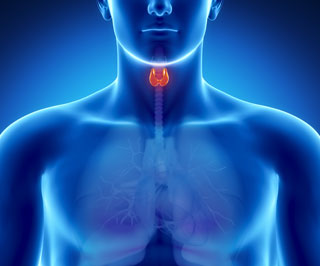 © janulla/Thinkstock
© janulla/Thinkstock
Echoing a conclusion reached 10 years ago in a 2004 report assessing the benefits and harms of thyroid dysfunction screening, the U.S. Preventive Services Task Force (USPSTF) says more research is needed to determine whether it is worthwhile to screen asymptomatic individuals for thyroid dysfunction, according to a recent review published in the Annals of Internal Medicine.
About 0.5% of the U.S. population may have undiagnosed overt thyroid disease, and an estimated 5% of women and 3% of men in the U.S. have subclinical thyroid dysfunction, according to the review. Some studies have linked subclinical hypothyroidism with increased risk for coronary artery disease and congestive heart failure, and some research has found subclinical hyperthyroidism to be associated with increased risk for all-cause and coronary heart disease mortality, atrial fibrillation, and decreased bone density. Additionally, overt thyroid disease is tied to negative effects on the cardiovascular, musculoskeletal, dermatologic, and gastrointestinal systems. As such, screening for thyroid disease could help spot these people and reduce the risk for adverse health outcomes, the authors wrote.
Although the USPSTF’s 2004 report and a systemic review conducted for the American Thyroid Association, the American Association of Clinical Endocrinologists, and the Endocrine Society, reached similar conclusions, prescribing rates for thyroid medications have increased dramatically in the last decade. An estimated 49.8 million prescriptions were written for thyroid medications in 2006, but that increased to 70.5 million in 2010. Among community-dwelling people older than age 65 who have subclinical hypothyroidism, the proportion of those prescribed thyroid hormone medications increased from 8.1% to 20% between 1989 and 2005.
Still, the authors contend there is insufficient evidence to recommend treating asymptomatic people. No study assessed for the USPSTF review directly examined the benefits and harms of screening these individuals, and none of the research was able to establish that the treatment was “associated with improved quality of life, cognitive function, blood pressure, or body mass index versus no treatment.” Some studies showed a potential benefit for lipid levels, but the results were inconsistent and not statistically significant in most of the studies.
Read the USPSTF review online.